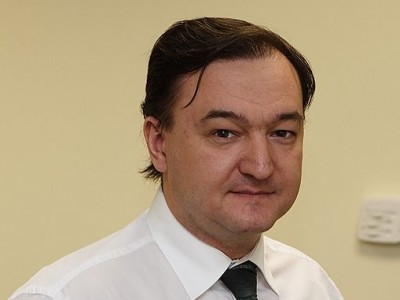
Address of the reception office of the Investigative Committee: Moscow, ul. Pervaya Frunzenskaya, d 3a
Address for writtent applications: 105005, Moscow, Tekhnichesky Pereulok, 2
Address of the reception office of the Investigative Committee: Moscow, ul. Pervaya Frunzenskaya, d 3a
Address for writtent applications: 105005, Moscow, Tekhnichesky Pereulok, 2

Considering that a number of media published criticism over ending a criminal investigation started in 2009 into death of Sergey Magnitsky in pretrial prison 77/1 of Russian Federal Prison Administration in Moscow, the Russian’s Investigative Committee believes it necessary to explain the following.
The subject of the investigation was both conditions of medical care and death of Magnitsky, and legality of actions by officials who arrested him and placed into custody.
During the preliminary investigation special attention was paid to check all reasons of possible illegal actions committed against Magnitsky stated in numerous claims of victims, messages of media and appeals of human rights organizations.
With this purpose investigators ran numerous forensic medical expert examinations, interrogations of experts and other investigating operations, based on the results of which it was found that Magnitsky’s death cause were complications of illnesses he had which had not been timely diagnosed at medical department of pretrial prison 77/2 of Russian Federal Prison Administration in Moscow by his attending medical doctor Litvinova L.A. who allowed lack of medical treatment.
Based on the evidence collected Litvinova was charged with a crime under part 2 of article 109 of RF Criminal Code and her superior – former deputy head of pretrial prison 77/2 of Russian Federal Prison Administration in Moscow Kratov D.B. – with part 2 of article 293 of the RF Criminal Code.
The criminal case against them was severed in a separate law suit in October 2011. The case against Litvinova was dropped due to lapse of actions. This reason of dropping the investigation is not rehabilitating and the position of investigators who led the preliminary investigation concerning her guilt in the crime stays the same.
After the investigation was finished and the indictment approved by the Prosecutor General’s Office the criminal case against Kratov was sent to Tverskoy district court of Moscow. The court acquitted Kratov. Investigating bodies have no right to give any assessment to the decision of the court.
Investigators have also checked the arguments that Magnitsky was arrested and detained illegally, that the pretrial restraining measure was also illegal and that there were specially created conditions which led to his death in custody.
Allegations stated in many appeals that Magnitsky was arrested due to his attempt to expose law enforcement officials as involved in stealing of 5.4 billion rubles of budget funds were checked by investigators and disproved by evidence.
Magnitsky’s suggestions that the crime was committed cannot be a reason to arrest anybody.
It has been found that criminal investigation against Magnitsky for helping to avoid taxes to OOO Dalnayay Step (LLC) and Saturn Investments on an especially large scale by understating tax base by fictitious employment to these organizations physically disabled persons, had its legal reasons. The basis for Magnitsky’s arrest was, among others, testimonies of the above-mentioned allegedly employed by him persons.
Magnitsky was put into custody in accordance with law and with enough grounds. During the investigation neither Magnitsky nor his defenders were limited in their right to appeal against the court’s decision and to produce any evidence.
All the actions and decisions by the Interior Ministry and courts appealed against by Magnitsky and his defenders were recognized lawful and grounded by higher courts and were not abolished.
When Magnitsky stayed in pretrial detention he was not subjected to conditions different from those for any other detainees, no pressure was put on him and he was not subjected to any physical violence or tortures.
Lack of objective data that any crime had been committed against Sergey Magnitsky allowed investigators who led the preliminary investigation to drop the case due to lack of evidence of a crime.
Magnitsky’s relatives and their representatives were notified about the decision to drop the case in due order with the copy of the procedural decision posted by mail.